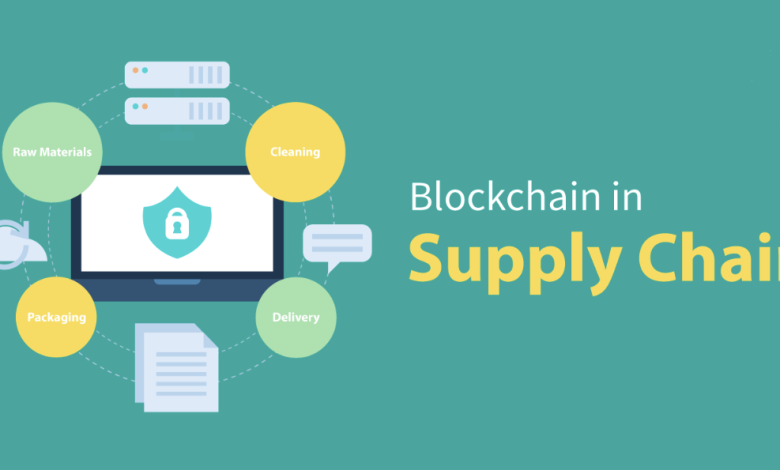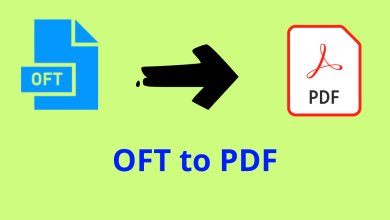Blockchain in Supply Chain: What is it & How Does it Work?

The most cited example of Blockchain technology is a cryptocurrency, such as Bitcoin. But did you know that Blockchain technology is also being used in supply chain management?
Blockchain is an advanced decentralized system for storing and sharing information at its core. In a typical supply chain network, data about products or shipments can be stored across multiple companies and systems, making it difficult to track changes and update the information in real-time.
The global blockchain supply chain market was valued at $ 93.16 million in 2017. Now, it’s all set to reach $ 9,852.91 million by 2025, with a CAGR of 80.2% from 2018 to 2025.
So, any guesses why Blockchain is becoming an increasingly important part of the supply chain ecosystem? It helps the companies securely and transparently tracks their transactions while reducing the risk of fraud or errors.
In this blog, we’ll take a closer look at how you can use Blockchain technology in supply chain management and explore some of its benefits. Along with this, we’ll discuss some real-life examples and significant challenges faced by companies today. Are you ready to dive in? Let’s go!
Role of Blockchain in Supply Chain:

Blockchain is revolutionizing the way companies manage their supply chains. As we know, it offers a secure, transparent, and tamper-proof way to store and share information across multiple parties. There are many ways Blockchain is being used in supply chain management.
1. Tracking The Movement Of Goods
In supply chain management, one of the essential aspects is tracking the movement of goods from point A to point B. With Blockchain, companies can track their shipments and identify any delays or issues. This information can be accessed by all parties involved in the supply chain, which helps to improve communication and coordination.
For example, Walmart uses advanced Blockchain technology to track food across its supply chain, from farm to store. As a result, they have significantly improved efficiency and reduced waste in their supply chain processes.
2. Managing Contracts & Agreements
The supply chain is full of contracts and agreements between different parties. These can be difficult to manage, as they often need an update. Companies use Blockchain to manage these contracts and agreements more efficiently by storing them on a decentralized platform. This makes it easier to track changes and ensure that all parties are compliant with the latest version.
For example, Maersk, the world’s largest shipping company, uses Blockchain to manage its supply chain contracts. The company has created a platform called TradeLens, which uses Blockchain to track and manage shipping documents. This has helped reduce the time it takes to process shipments by up to 40%.
3. Creating a Secure Environment for Financial Transactions
Another essential aspect of supply chain management is financial transactions. These need to be processed quickly and securely, without the risk of fraud or errors. Blockchain can provide a secure environment for financial transactions by storing information on a decentralized platform. This makes it difficult for hackers to access or tamper with the data.
For example, IBM uses Blockchain to process payments in its supply chain. The company has developed a platform called TradeLens, which uses Blockchain to track and manage shipping documents. It has helped reduce the time it takes to process payments by 50%.
4. Managing the Entire Process End-to-End:
Blockchain can also manage the entire supply chain process from end to end. It includes tracking the movement of goods, managing contracts and agreements, and processing financial transactions. By controlling the entire process on a decentralized platform, companies can improve communication and coordination between all parties involved.
Additionally, they can reduce the risk of fraud or errors and streamline their operations, leading to more efficient supply chain management. It is the ultimate goal of using Blockchain in supply chain management.
5. Improving Transparency and Traceability:
The next major benefit of using Blockchain in supply chain management is transparency and traceability. By sharing information across multiple parties, companies can enhance the visibility of their supply chains, making it easier to track goods and identify any potential issues.
It also helps reduce the risk of fraud or contamination, as companies can quickly identify the source of any problems. Companies even can share this information publicly on a blockchain, allowing consumers to see where their food or other products came from.
Overall, there are many benefits to using Blockchain in supply chain management. By improving transparency and traceability, reducing the risk of errors and fraud, and managing the entire process end-to-end, companies can streamline their operations and enhance the efficiency of their supply chains.
Top Challenges of Blockchain in Supply Chain:
1. Creating an Interoperable System:

Something essential for Blockchain technology is interoperability. This means that different systems need to be able to work together for the technology to reach its full potential. In supply chain management, there are a lot of different systems, such as transportation, warehousing, and manufacturing.
To use Blockchain more effectively, these different systems need to be able to communicate with each other. It can be a challenge, as each system has unique protocols and standards.
2. Managing Large Amounts Of Data
Another challenge companies face when using Blockchain is managing large amounts of data. The supply chain generates a lot of data, which needs to be stored on the Blockchain platform. It can be a challenge, as the platform needs to be able to handle large amounts of data efficiently.
3. Ensuring Security & Compliance:
Security is another critical concern for companies when using Blockchain in supply chain management. The technology’s decentralized nature means no central authority managing the data. This makes it more challenging to ensure that the data is secure and compliant with regulations.
4. Implementing Blockchain Technology
Finally, another challenge that companies face when using Blockchain is implementation. Because Blockchain is a new technology, few experts know how to implement it effectively. This can be a challenge, as companies need to ensure that their systems are compatible with Blockchain and implemented correctly.
Despite these challenges, many companies are beginning to see the benefits of using Blockchain in supply chain management. They hire Blockchain developers in India to help them with implementation.
Read Also: 7 Lean Software Development Principles You Should Know About
Conclusion
Overall, there are many benefits to using Blockchain in supply chain management. It includes improving communication and coordination between different parties, reducing the risk of fraud or errors, and managing large amounts of data more efficiently.
However, companies need to overcome many challenges, including creating an interoperable system and effectively managing large amounts of data. Despite these challenges, many companies are beginning to adopt Blockchain in supply chain management and see the benefits of this exciting new technology.
So, suppose you also want to take your business to the next level by using Blockchain technology. In that case, you should hire a Blockchain development company in India that can help you with its implementation. They’ll identify the proper use cases for Blockchain, develop a strategy for implementing it in your supply chain, and manage all of the technical aspects of this process.






